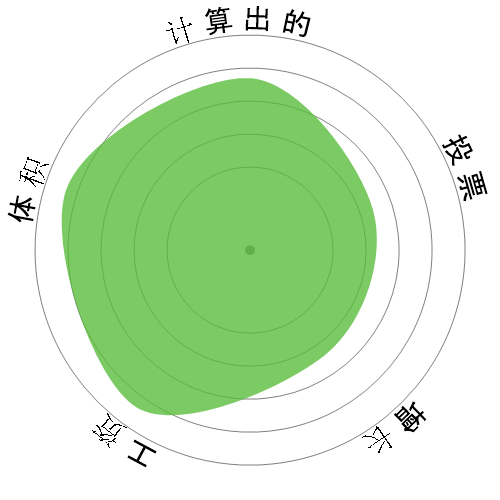律师
低风险
32%
您接下来想去哪里?
或者,更深入地探索这个职业...
自动化风险
计算出的
23%
(低风险)
投票
41%
(中等风险, 根据 6,770 票的投票结果)
Average: 32%
劳动力需求
增长
5.2%
到2033年
工资
$145,760
或每小时 $70.07
体积
731,340
截至 2023
摘要


这个雪花图案展示了什么?
雪花是五个徽章的视觉总结:自动化风险(计算得出)、风险(投票得出)、增长、工资和体积。它为你提供了一个职业概况的即时快照。雪花的颜色与其大小有关。与其他职业相比,某个职业的得分越好,雪花就会变得越大且越绿。
工作评分
7.4/10
这是什么?
工作评分(越高越好):
我们使用四个因素对工作进行评分。这些是:
- 被自动化的可能性
- 工作增长
- 工资
- 可用职位的数量
这些是求职时需要考虑的一些关键事项。
我们使用四个因素对工作进行评分。这些是:
- 被自动化的可能性
- 工作增长
- 工资
- 可用职位的数量
这些是求职时需要考虑的一些关键事项。
人们还浏览了
计算自动化风险
低风险(21-40%):这个级别的工作面临的自动化风险较低,因为它们需要技术和以人为中心的技能的混合。
有关这个分数是什么以及如何计算的更多信息可在这里找到。
用户投票
我们的访客投票表示,他们不确定这个职业是否会被自动化。 然而,员工可能会在我们生成的自动化风险等级中找到安慰,该等级显示有23%的机会会被自动化。
你认为自动化的风险是什么?
律师在未来20年内被机器人或人工智能取代的可能性有多大?
情感
以下图表显示了在有足够投票的情况下生成的有意义数据。它展示了用户投票结果随时间的变化,清晰地指示了情感趋势。
随着时间的推移的情绪(季度)
随着时间(每年)的情绪变化
增长
预计"Lawyers"的工作空缺数量将在2033内增长5.2%
总就业人数和预计的职位空缺
* 根据劳工统计局的数据,该数据涵盖了从2023到2033的期间。
更新的预测将在09-2025到期.
更新的预测将在09-2025到期.
工资
在2023,'Lawyers'的年度中位数工资为$145,760,或每小时$70。
'Lawyers'的薪资比全国中位工资高203.3%,全国中位工资为$48,060。
随着时间推移的工资
* 来自美国劳工统计局的数据
体积
截至2023,在美国有731,340人被雇佣为'Lawyers'。
这代表了全国就业劳动力的大约0.48%
换句话说,大约每207人中就有1人被雇佣为“Lawyers”。
工作描述
代表客户参与刑事和民事诉讼以及其他法律程序,起草法律文件,或管理或就法律交易向客户提供咨询。可能专攻某一领域,也可能广泛地在许多法律领域进行执业。
SOC Code: 23-1011.00
评论 (232)
They'll do less errors, and don't require sleep. No more receptionist that is away. Longer opening hours.
Why do you say robots have no empathy, you fillthy racist? They have it. Robots would probably beat you up.
Not that I'd expect someone who doesn't even know the definition of 'racist' and just flings the word around however would know what empathy is...
And besides, you never even addressed what they said. They didn't even bring up empathy, as their point was about people not wanting a robot to defend them. You've brought up a completely nonsensical rebuttal to an argument that doesn't exist.
These are the tasks that robots won't be able to fulfill for at least a decade from now.
回复评论